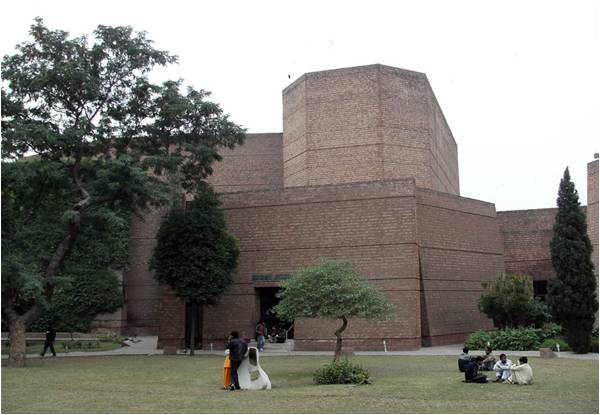
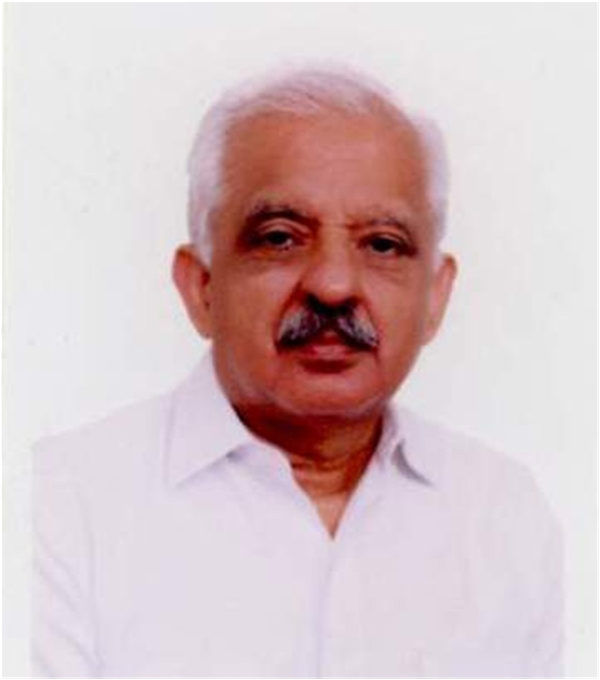
Muzaffar Ghaffar is the President of the Lahore Arts Forum (LEAF) known to be the most active cultural organization in Pakistan (in its 17th year). LEAF provides an enclave where folks come to nurture their soulful aspects. It is a place where poetry, literature, ‘kaafi’ can be enjoyed and the dream of a gentler world remains alive.
Mr. Ghaffar has degrees in History, Geography and English Literature. He has written four books of English verse, three books of non-fiction (How Governments Work, Unity and Diversity, the Brain the Body the Soul the Mind). He has translated Bulleh Shah and other Sufi poets – a total of 15 volumes. Yet, with his great accomplishments, he remains friendly, modest, approachable and always ready to help.
JN: Let's start with the roots. Where were you born? Share some of your childhood experiences.
MG: I was born in Nagpur in central British India. India has meant different things at different times. There was Buddhist ruled India, Muslim ruled India, British India and Bharat India. I mention this as India had different orientations under different rulers.
Let me share a small story. In our neighborhood in Nagpur my very good friend was a Hindu boy. One day, my mother called me and told me I was not to go to Rao’s house but that Rao could come to our home. Rao’s mother had conveyed through a mutual friend that they had great regard for my family but that my visits to their house came at a big expense because they were Brahmins and had to get their house ‘cleaned’ by a purjari after my visit. So there were two nations right there on the street with no quarrel, no animosity, just the dynamics of what the religions enjoin or what the culture demands.
He has written four books of English verse, three books of non-fiction
JN: You can converse in Punjabi, Urdu and English with equal ease. You do not need the crutch of Urdu to complete your conversation in English. Unfortunately, in Pakistan most of us speak pigeon version of a language. Was it by conscious effort that you acquired this level of fluency?
MG: That is an interesting question. My father must have mulled over this because according to his wishes, I was to speak to my mother in Punjabi, my father in Urdu, and English in school. So, the three languages formed their separate pathways in the brain. Probably that is where that comes from. I pass on this recipe to others but nobody listens to me!
JN: We know you as the guy who runs the Lahore Arts forum. What was your life before the forum?
MG: I lived in Hong Kong for ten years. I owned a small highly successful Marketing and Management firm. I came back to Pakistan because my mother fell ill. She needed help. Both my brothers had passed away. After returning I thought I would set up a small industry as my knowledge strength is in marketing and management.
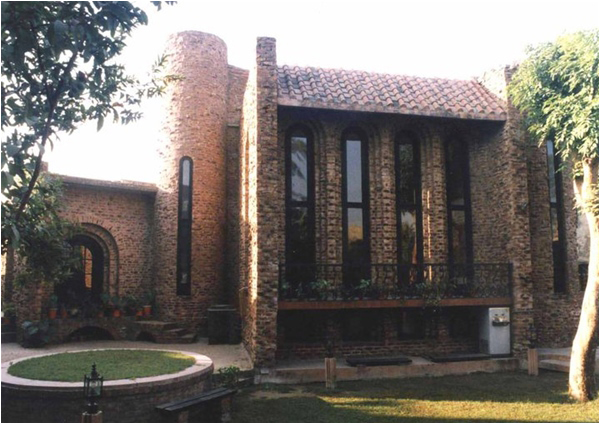
JN: So what happened? You did not go into business?
MG: I talked to friends and realized that I had missed the bus. I could not adjust to the way business was done in Pakistan. In Hong Kong everything was streamlined. We had a small income tax, the rules were simple, as long as you did not mess with the rules you could do what you wished. We were able to concentrate on the business rather than on finding ways to circumvent the law. I had grown accustomed to doing business the straightforward way and I just couldn’t think of doing it the other way. In Pakistan business cannot proceed unless money changes hands – you have to give a monthly stipend to the lineman, the gas man and everybody else. I didn’t want to do that so I didn’t.
"I was to speak to my mother in Punjabi, my father in Urdu, and English in school"
JN: What did you decide to do next?
MG: I had always enjoyed programmes of classical music, literature and art. Hong Kong had been a culturally vibrant place. I missed that so I started looking around. This was in 1989 and there was more happening then than there is now. At the artist studio of a friend, informal talks were held on art history and art appreciation. We decided to make these talks into regular class sessions. We chose Shakir Ali museum as a venue and the art history classes were started there. Also, for several years I taught History & Heritage classes at the National College of Arts.
JN: Lahore Arts Forum has been around for 17 years. How was the forum conceived? What was the inspiration that led to its formation?
MG: Actually there was no inspiration. It was an evolution. The Lahore Arts Forum was started by the group of students studying art history and by their friends. I coined the name Lahore Arts Forum on the spur of the moment. The venue came from the government and the programming was provided by us. It is interesting that the idea of non-government/government partnership in the arts started with the LEAF. Since then this model has been used by others.
We visualized a forum for classical, discussion and readings programmes. The readings programme was devised to incorporate all three languages, Urdu, Punjabi and English. We felt there was no communication between the arts; poets sit with poets, musicians with musicians and painters with painters. Mother Muse is the same for all yet they don’t talk to each other. So within the readings programme we added an arts capsule where somebody whose primary discipline is not the written word would give their worldview. We also commemorate ‘bursis’ of musicians. Throughout the ages, writers, musicians, painters make us who we are. We have to say ‘Assalam ailaikum’ to them and thank them.
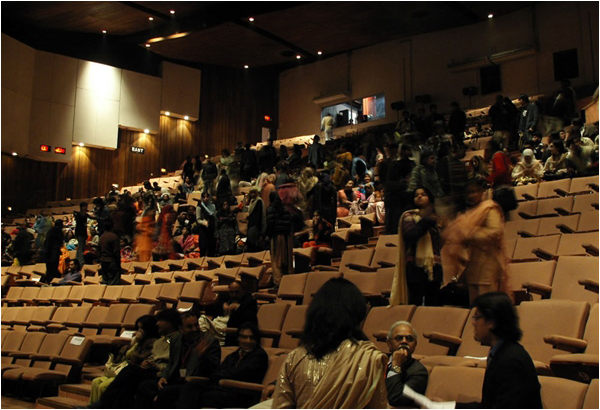
Pakistan will endure because the Indus Basin is an entity
JN: You say ‘we’ but it seems as if there’s only you. You seem to be the only one holding the ball in keeping Lahore Arts Forum going.
MG: It is very difficult to get somebody to do serious long-term volunteer work. At least I have not been able to find such a person. A person who can put in time and effort and also to quietly put in money for expenses such as phone, fax, internet, electricity. I absorb all the costs; sometimes even musicians are brought in my car. And I do not get a salary, not a single cent. I don’t blame people for not volunteering; it is not an easy life, we have families, we have work, a lot of compulsions.
JN: So it really is a labour of love on your part.
MG: I like ‘labour of love’ but it is a bit pretentious. I will be very honest with you. I do this because I feel it should be done. Also, these are the type of functions I would like to attend so if nobody will do them I do them. And this way a few other interested people come too.
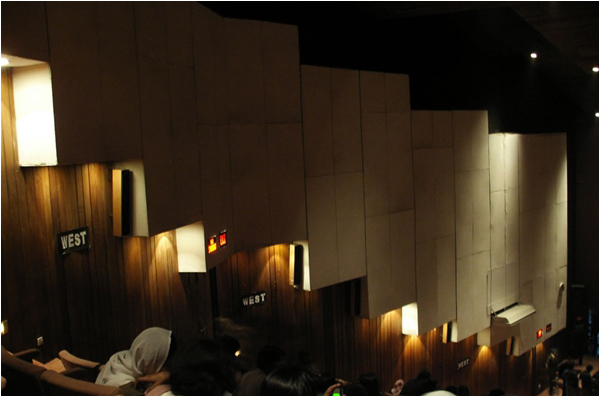
JN: Many times the speakers are good, musicians are excellent, and yet you have a very small audience. Do you ever feel discouraged or lose heart?
MG: It is difficult to predict the audience size. There is only one identifiable factor. If there is a ‘star’ quality performer, people will come; it doesn’t go with quality, it goes with the name. The weather does not seem to be a factor. I remember at the Model Town library one evening, the weather was bad, it was raining cats and dogs, yet the hall filled to capacity. Another time, before air conditioning became common, we had a packed hall on a hot day when it is murder to sit in a crowded room. I take it as it comes. I never lose heart.
JN: Your speakers are excellent and come with the best credentials. How do you manage to find them?
MG: Every week I talk to about 40 people to set up the program. I have a huge advantage in getting people together that accrues to me by default. This is because I was out of Lahore for a long time and was not aware of the groups that had formed around literary individuals. The people of one group will not be found dead in the company of the other. Not knowing this I spoke to all and invited everybody.
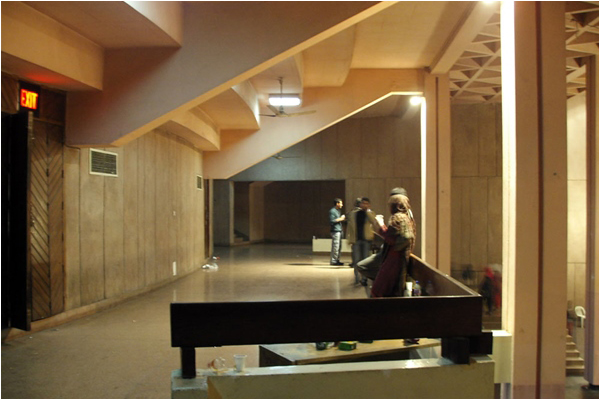
"I like 'labour of love' but it is a bit pretentious"
JN: Do these groupings impact finding good performers or getting an audience?
MG: Both. After a while folks realized I am not in this for a personal gain, getting a government job or having doors opened or other favours. In the calls that I make many good people who say no others agree to come to LEAF. It is indeed a well known fact that all groups come to the LEAF programmes.
I am not looking for any glory within the Lahore Arts forum. My name does not even appear on the programme. Sometimes people object that they don’t have a telephone number on the programme to contact me. But to put the telephone number I have to put my name. I say “What do you need to ring me up for? You come to the programme. If you want to get the programme schedule give me your address and I will mail it to you”. Though I admit this is a weakness as sometimes people need to know something. But the loss I think would be much greater by projecting myself. Also, I never have programmes where I am the speaker. I may be the speaker by default if somebody doesn’t turn up and I can’t find anybody to fill in.
JN: Someone likened Pakistan to a child born with a hole in the heart. The child is always afraid that death is around the corner. In a similar manner Pakistanis fear their country will be annihilated. What do you think?
MG: Pakistan will endure because the Indus Basin is an entity with its unique culture and heritage. It has always had its own identity so I don’t even like the phrase ‘Independence of 14th August’. The Indus Basin civilization was here and nowhere else and it has always been together. It was sometimes ruled from Kabul and at other times from Delhi. The Gandhara culture is here not anywhere else. In my book Unity and Diversity I have explored my contention at length.
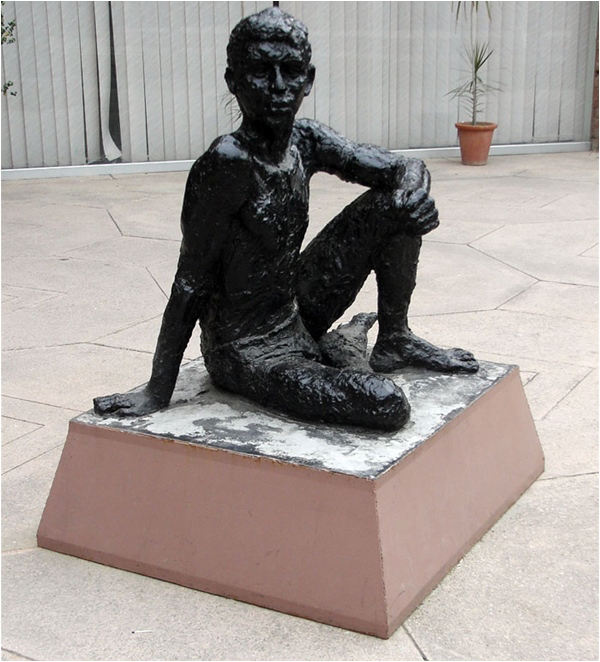
JN: Say a few words about the public surge towards democracy and about the issue of extremism.
MG: I think democracy is the best form of government that has been devised. I wish it could be without politicians. I have not found a politician that I can respect, not one. This is one of my quandaries – democracy without politicians! Social injustice, poverty, inequities, these are my issues. I care a lot about them. These issues worry me immensely. All the politicians do is talk glib.
There are many factors contributing to extremism including the definition of Jihad. I ask “How has death or killing become the only argument for disenfranchised youth?” The suicide bomber as a weapon of war has no answer to life.
JN: In one of your poems you write ‘The moment/with fire in its eyes/will pounce on you/and bite off your flesh/digging its claws/to reach the bone’. Is this fierce rendition of the moment, the now, the way you live your life?
MG: The poem of course is a representation of a moment. A moment will do that to you from time to time. But, yes I live in the present while looking towards the future whatever the future may be. I have very little connection to my past. I am interested in history on a larger scale. On an individual basis I have very few memories of the past because they are not important. I want to focus on what I am, what I know, what I feel.
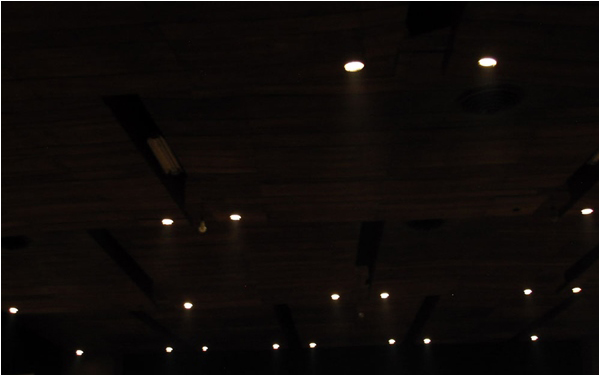
JN: How do you feel about mortality?
MG: I don’t worry about it. I remember I was going on a small plane in Sindh somewhere. I was the only passenger and there was a burning smell. The pilot tried fixing the controls but suddenly the fuel gage went to zero. He landed somewhere, opened the engine, poked around and said “If there was something that burned, it burnt itself out”. He closed the engine and we took off again. What I want to tell you is that there was not a moment’s fear that this is it. If I start agonizing over my impending death then I will not get any work done. It will come when it will come.
JN: What is your favorite pastime? Other than running the Lahore Arts Forum of course.
MG: Oh it is my work. I love my work. I can spend hours on it. I start in the morning and finish at about nine in the evening. I stop only because I must eat and I must go to sleep. Work is peace for me. Punjabi poets have such amazing depth. Each line has so much meaning in it and unless you really get into it you cannot translate it. So I have to get into it and it is easy because I enjoy getting into it. Basically I have more or less excluded myself from socializing. I have done this because I find my work much more fulfilling, no other reason. I watch television at lunch time and at dinner time. I don’t miss much as in the 80 plus channels there is not one you want to see; it is mostly garbage.
JN. What would you like to share about Muzaffar Ghaffar the man? What makes you happy? What frustrates you?
MG: I have never thought much about this fellow, Muzaffar Ghaffar. Let me see… I am frustrated when I hear discordant music. It actually puts me in a state of revulsion. If I happen to be eating I cannot swallow. I also cannot suffer fools. I am happy when there is peace in my ambiance; good literature, good verse and good company all make me happy.

